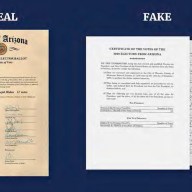 Experts from Discover Boating will be on hand at the Progressive Insurance New York Boat Show to help serious buyers find the perfect vessel for their needs. Credit: Progressive Insurance New York Boat Show
Experts from Discover Boating will be on hand at the Progressive Insurance New York Boat Show to help serious buyers find the perfect vessel for their needs. Credit: Progressive Insurance New York Boat Show
Whether you are new to boating, or a seasoned sea vet, bringing a new boat into your life is an exciting time. There are boats and payment strategies to fit every lifestyle. But don’t let the number of options overwhelm you!Here are some things to think about when getting ready to buy your boat:
1. Make choices based on your interests
There are about as many boating-related activities as there are boaters, so it’s important to think about what you’ll be using it for. There are boats that are best-suited for water-sports or racing, while others might be best for activities like fishing, day trips, or cruises. You can use the www.discoverboating.com boat selector tool to narrow your search by favorite activity, and number of people you’ll have on board.
2. Decide if buying new or pre-owned best suits your needs
There are pros and cons to buying new and pre-owned models. New boats have lower financing rates and better warranties, offer trouble-free operation and maintenance, and can be customized specifically for you by color, layout, and other personal preferences. However, they also cost more and depreciate in value over the first year. You can find great bargains on pre-owned boats, if you do your research. New boats might be best for first-timers. For those shopping pre-owned, a marine surveyor can help you make the right choice. You can find one near you at www.marinesurvey.org.
3. Know the costs to budget for
You’ll need to pay for the boat and a place to store it, but there are other costs to keep in mind when budgeting for your new boat. Fuel costs vary depending on the type of boat, and how often you use it. The average boat spends 90 hours a year on the water, and the average runabout uses $300 – $800 in fuel a year. Maintanance costs also depend on the type and age of the boat, but many of these costs can be eliminated with a little elbow grease and by learning the basics of caring for your boat yourself. You’ll also need insurance for your boat – most plans cost about half of what it would cost to insure a comparably priced car.
















